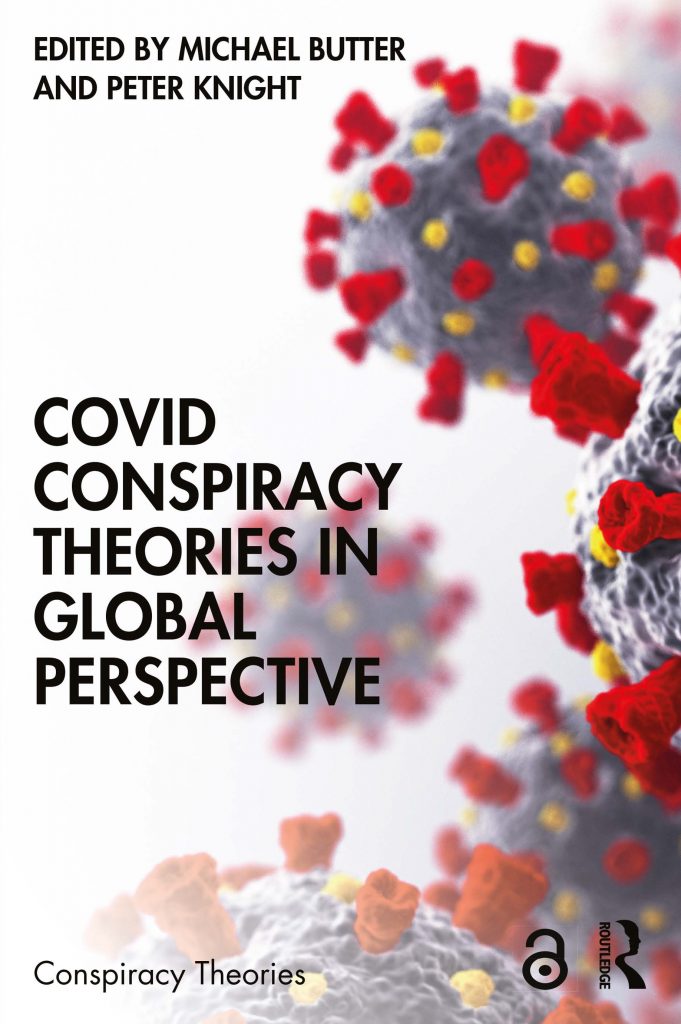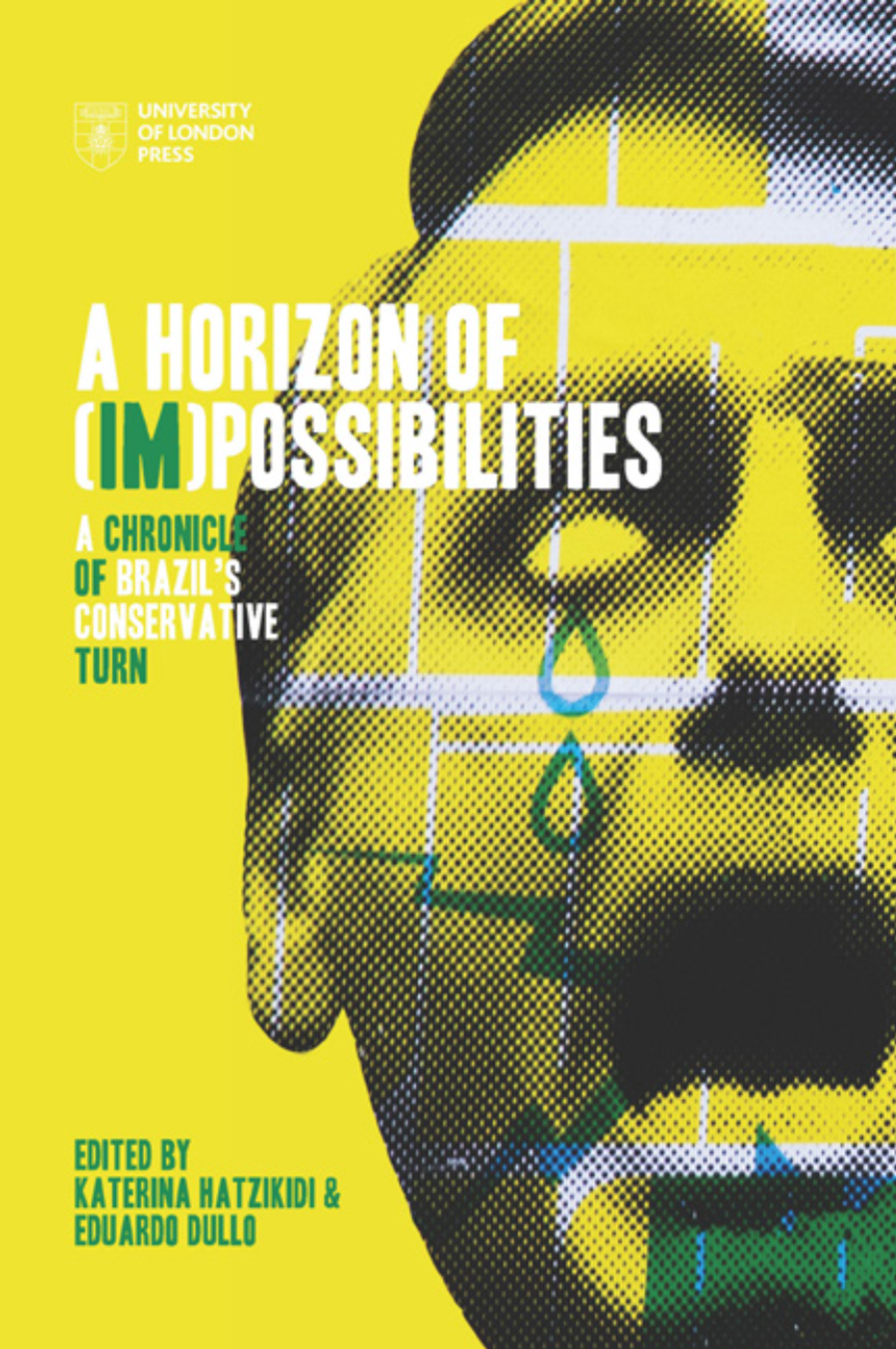Publications
The researchers doing the subprojects will be writing monographs, a selection of the papers delivered at the three big conferences will be published in edited volumes, and the PI and the postdoc researcher will write a number of articles for peer-reviewed journals. All publications will be open access.
This book explores the close connections between populism and conspiracy theory. Populism and Conspiracy Theory contributes to filling the gap in the…
This recently published short article is a contribution to the anthropological Focaal Blog as part of a series on “Fascism, Then and…
In the mid-1980s, the far-right Freedom Party of Austria (FPÖ) experienced a meteoric rise at the ballot boxes thanks to…
How do populists use conspiracy theories? And is it correct to say that conspiracy theorists are always anti-science, as you…
Towards an anthropology of democracy – and its challenges What are the specificities of an anthropological reflection on politics in…
Anti-Communist Conspiracy Theories in Brazil’s Response to the Covid-19 Pandemic – This is chapter 26 of the 2023 edited volume…
This is chapter 20 of the 2023 edited volume “Covid-19 Conspiracy Theories in Global Perspective”, edited by Michael Butter and…
This is chapter 17 of the 2023 edited volume “Covid-19 Conspiracy Theories in Global Perspective”, edited by Michael Butter and…
The Case of Hungary – This is chapter 16 of the 2023 edited volume “Covid-19 Conspiracy Theories in Global Perspective”,…
This is chapter 15 of the 2023 edited volume “Covid-19 Conspiracy Theories in Global Perspective”, edited by Michael Butter and…
This chapter is the introduction to the 2023 edited volume “Covid-19 Conspiracy Theories inGlobal Perspective”, edited by Michael Butter and…
This article provides a characterization of the Querdenken milieu in Germany and depicts the role conspiracy theories play within the movement. In…

Populism and Conspiracy Theory: Case Studies and Theoretical Perspectives
Edited By Michael Butter, Katerina Hatzikidi, Constanze Jeitler, Giacomo Loperfido, and Lili Turza
This book explores the close connections between populism and conspiracy theory. Populism and Conspiracy Theory contributes to filling the gap in the research in this area. The individual contributions in Part I provide in-depth analyses of specific configurations of populism and conspiracy theory. Part II includes nuanced considerations of more theoretical issues. The case studies cover both right-wing and left-wing manifestations of populism while highlighting that populist movements often cut across the traditional left-right divide. Chapters focus on the twenty-first century and the first half of the twentieth century, as well as the impact of history and memory on contemporary discourses. Geographically, the case studies consider the Americas as well as Europe and Northern Africa. Theoretical discussions include the aesthetics and forms of populist conspiracism, or its dependence on new media. The disciplines represented in the volume range from political science and sociology via anthropology and history to linguistics and cultural studies.
It will appeal to those interested in politics, specifically conspiracy theory, populism, democracy, and leadership.
The Open Access version of this book, available at www.taylorandfrancis.com, has been made available under a Creative Commons Attribution‑Non Commercial‑No Derivatives (CC‑BY‑NC‑ND) 4.0 license.
Butter, M., Hatzikidi, K., Jeitler, C., Loperfido, G., & Turza, L. (Eds.). (2024). Populism and Conspiracy Theory: Case Studies and Theoretical Perspectives (1st ed.). Routledge. https://doi.org/10.4324/9781003474272

Covid Conspiracy Theories in Global Perspective
Edited By Michael Butter, Peter Knight
Covid Conspiracy Theories in Global Perspective examines how conspiracy theories and related forms of misinformation and disinformation about the Covid-19 pandemic have circulated widely around the world.
Covid conspiracy theories have attracted considerable attention from researchers, journalists, and politicians, not least because conspiracy beliefs have the potential to negatively affect adherence to public health measures. While most of this focus has been on the United States and Western Europe, this collection provides a unique global perspective on the emergence and development of conspiracy theories through a series of case studies. The chapters have been commissioned by recognized experts on area studies and conspiracy theories.
The chapters present case studies on how Covid conspiracism has played out (some focused on a single country, others on regions), using a range of methods from a variety of disciplinary perspectives, including history, politics, sociology, anthropology, and psychology. Collectively, the authors reveal that, although there are many narratives that have spread virally, they have been adapted for different uses and take on different meanings in local contexts.
This volume makes an important contribution to the rapidly expanding field of academic conspiracy theory studies, as well as being of interest to those working in the media, regulatory agencies, and civil society organizations, who seek to better understand the problem of how and why conspiracy theories spread.
The Open Access version of this book, available at www.taylorfrancis.com, has been made available under a Creative Commons Attribution-Non Commercial-No Derivatives 4.0 license.

A Horizon of (Im)possibilities: A Chronicle of Brazil’s Conservative Turn
Edited By Katerina Hatzikidi, Eduardo Dullo
The 2018 presidential election result in Brazil surprised and shocked many. Since then, numerous debates and a growing body of texts have attempted to understand the country’s so-called ‘conservative turn’.
A gripping in-depth account of politics and society in Brazil today, this new volume brings together a myriad of different perspectives to help us better understand the political events that shook the country in recent years. Combining ethnographic insights with political science, history, sociology, and anthropology, the interdisciplinary analyses included offer a panoramic view on social and political change in Brazil, spanning temporal and spatial dimensions. Starting with the 2018 presidential election, the contributors discuss the country’s recent –or more distant– past in relation to the present. Pointing to the continuities and disruptions in the course of those years, the analyses offered are an invaluable guide to unpacking and understanding the limits of Brazilian democracy, including what has already come to pass, but also what is yet to come.

The Nature of Conspiracy Theories
Michael Butter
Translated by Sharon Howe
Conspiracy theories seem to be proliferating today. Long relegated to a niche existence, conspiracy theories are now pervasive, and older conspiracy theories have been joined by a constant stream of new ones – that the USA carried out the 9/11 attacks itself, that the Ukrainian crisis was orchestrated by NATO, that we are being secretly controlled by a New World Order that keep us docile via chemtrails and vaccinations. Not to mention the moon landing that never happened.
But what are conspiracy theories and why do people believe them? Have they always existed or are they something new, a feature of our modern world?
In this book Michael Butter provides a clear and comprehensive introduction to the nature and development of conspiracy theories. Contrary to popular belief, he shows that conspiracy theories are less popular and influential today than they were in the past. Up to the 1950s, the Western world regarded conspiracy theories as a legitimate form of knowledge and it was therefore normal to believe in them. It was only after the Second World War that this knowledge was delegitimized, causing conspiracy theories to be banished from public discourse and relegated to subcultures. The recent renaissance of conspiracy theories is linked to internet which gives them wider exposure and contributes to the fragmentation of the public sphere. Conspiracy theories are still stigmatized today in many sections of mainstream culture but are being accepted once again as legitimate knowledge in others. It is the clash between these domains and their different conceptions of truth that is fuelling the current debate over conspiracy theories.